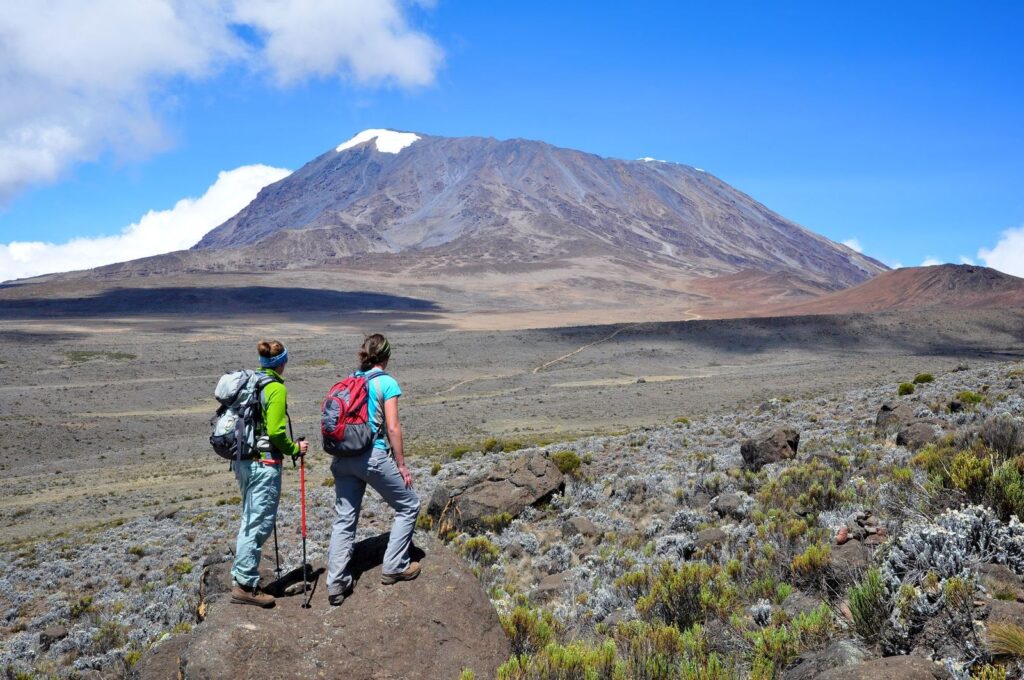Mount Kilimanjaro Trek
-
Home
Oyuncular için güvenilirlik ölçütü olarak Paribahis sistemleri ön planda.
-
Mount Kilimanjaro Trek
Oyuncular için güvenilirlik ölçütü olarak Paribahis sistemleri ön planda.
Futbol, basketbol ve daha pek çok spor dalında kupon yapmak için paribahis bölümü tercih ediliyor.
Futbol, basketbol ve daha pek çok spor dalında kupon yapmak için paribahis bölümü tercih ediliyor.
Why Climb Kilimanjaro?
- Adventure of a Lifetime: Summiting Kilimanjaro is a bucket-list achievement for many, offering breathtaking views and a sense of accomplishment.
- Non-Technical Climb: No technical mountaineering skills are required, making it accessible to many hikers.
Routes
There are several routes to choose from, each with unique characteristics:
- Marangu Route: Known as the “Coca-Cola” route, it’s one of the shortest and offers hut accommodations.
- Machame Route: Popular for its scenic beauty, though it’s more challenging.
- Lemosho Route: Offers stunning views and a higher success rate due to its longer acclimatization period.
- Rongai Route: Approaches from the north and is less crowded.
Preparation
- Fitness: Basic fitness is essential. Regular walks, runs, or hikes in the months leading up to the trek will help build stamina.
- Guides: Regulations require climbers to ascend with a local guide. Ensure your tour operator is licensed by Kilimanjaro National Park.
Ecological Zones
The trek takes you through five distinct climate zones:
- Bushland
- Rainforest
- Heath
- Alpine Desert
- Arctic Summit
Challenges
- Altitude: The high altitude can be challenging, so acclimatization is crucial.
- Duration: Treks typically last between 5 to 10 days, depending on the route.
Wildlife and Scenery
- Wildlife: You might encounter colobus monkeys, tropical birds, and even elephants on the lower slopes.
- Scenery: From lush rainforests to icy glaciers, the diverse landscapes are a highlight of the trek.
Are you considering climbing Kilimanjaro, or just curious about the adventure?

Schedule
Futbol, basketbol ve daha pek çok spor dalında kupon yapmak için spor bahisleri bölümü tercih ediliyor.
- Elevation: 1,640m to 2,850m (5,380ft to 9,350ft)
- Distance: 11 km (7 miles)
- Hiking Time: 5-7 hours
- Habitat: Rainforest
- Highlights: Begin your trek through lush rainforest, spotting wildlife and enjoying the vibrant flora.
- Overnight: Machame Camp.
Canlı maç heyecanını artırmak için Paribahis kategorisi ziyaret ediliyor.
- Elevation: 2,850m to 3,750m (9,350ft to 12,300ft)
- Distance: 5 km (3 miles)
- Hiking Time: 4-6 hours
- Habitat: Moorland
- Highlights: Ascend through the moorland zone, with stunning views of the mountain and surrounding landscapes.
- Overnight: Shira Camp.
Promosyonlardan yararlanmak isteyenler Bahsegel sayfasını sık sık ziyaret ediyor.
- Elevation: 3,750m to 4,600m (12,300ft to 15,100ft) then down to 3,900m (12,800ft)
- Distance: 10 km (6 miles)
- Hiking Time: 6-8 hours
- Habitat: Semi-desert
- Highlights: Acclimatization day with a climb to Lava Tower before descending to Barranco Camp.
- Overnight: Barranco Camp.
Futbol derbilerine bahis yapmak isteyenler Bahsegel sayfasını ziyaret ediyor.
- Elevation: 3,900m to 4,640m (12,800ft to 15,200ft)
- Distance: 9 km (5.5 miles)
- Hiking Time: 8-10 hours
- Habitat: Alpine Desert
- Highlights: Climb the Barranco Wall and traverse glacial valleys, then continue to Barafu Camp.
- Overnight: Barafu Camp.
Mobil deneyimi ön planda tutan Paribahis giriş uygulaması sektörde fark yaratıyor.
- Elevation: 4,640m to 5,895m (15,200ft to 19,340ft) then down to 3,100m (10,170ft)
- Distance: 17 km (11 miles)
- Hiking Time: 10-14 hours
- Habitat: Arctic to Rainforest
- Highlights: Midnight start for the summit push to Uhuru Peak, the highest point in Africa. After celebrating at the summit, descend to Mweka Camp.
- Overnight: Mweka Camp.
Canlı karşılaşmalara yüksek oranlarla bahis yapmak için Paribahis giriş kategorisi kullanılıyor.
Book Now
Include
-
Tour Guide
Futbol derbilerine özel yüksek oranlar Bahsegel giriş bölümünde yer alıyor.
Canlı maçlara yüksek oranlarla bahis yapmak için paribahis giriş bölümü aktif kullanılıyor.
-
Adres doğrulaması yapmak için Bahsegel giriş kullanmak şart.
AccommodationPromosyon avcıları için Bahsegel giriş kampanyaları büyük bir fırsat sunuyor.
-
Kazancını artırmak isteyenler için Bettilt kampanyaları büyük fırsatlar sunuyor.
Pickup RideDerbi günü kadro haberlerini gördüğümde karar ağacımın merkezine Bettilt oran geçmişini ekleyip riskimi ayarladım.
-
Dijital oyun deneyimini artırmak için Bettilt platformları kullanılıyor.
BreakfastDijital oyun deneyimini artırmak için Bahsegel platformları kullanılıyor.
-
Dinner
Yeni yılın en dikkat çekici sürümü olacak bettilt şimdiden gündeme oturdu.
Futbol maçlarına yüksek oranlarla bahis yapmak için Bettilt bağlantısı tercih ediliyor.
Exclude
- Alcoholic Drink
- Laundry
- Private Expenses
- Alcoholic Drink
